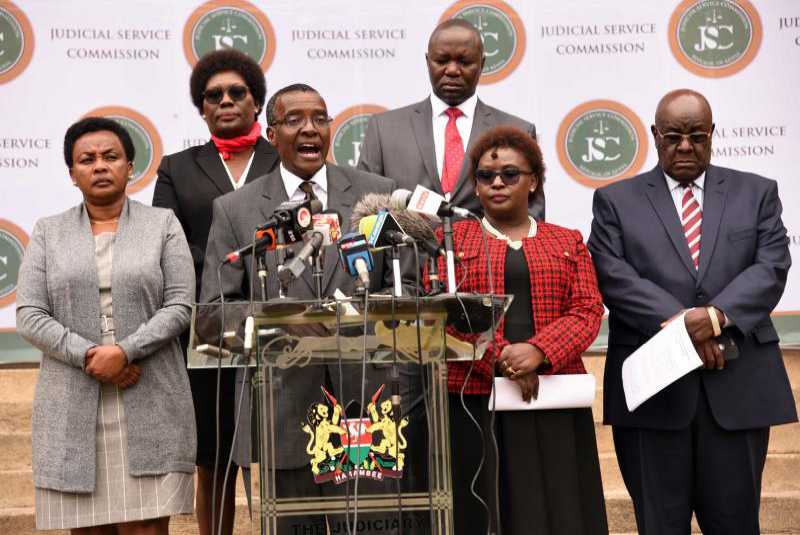×
The Standard e-Paper
Home To Bold Columnists

Chief Justice David Maraga flanked by members of the Judicial Service Commission (JSC) addresses a press conference at Supreme Court on Tuesday, July 24, 2018. [David Njaaga, Standard]
Cancellation of health insurance for all judges and other staff was the first pointer of a cash-strapped Judiciary.